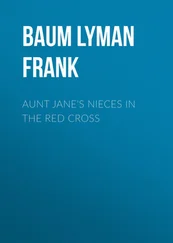John Schwartz - The Red Daughter
Здесь есть возможность читать онлайн «John Schwartz - The Red Daughter» весь текст электронной книги совершенно бесплатно (целиком полную версию без сокращений). В некоторых случаях можно слушать аудио, скачать через торрент в формате fb2 и присутствует краткое содержание. Город: New York, Год выпуска: 2019, ISBN: 2019, Издательство: Random House, Жанр: Историческая проза, на английском языке. Описание произведения, (предисловие) а так же отзывы посетителей доступны на портале библиотеки ЛибКат.
- Название:The Red Daughter
- Автор:
- Издательство:Random House
- Жанр:
- Год:2019
- Город:New York
- ISBN:978-1-40006-846-3
- Рейтинг книги:4 / 5. Голосов: 1
-
Избранное:Добавить в избранное
- Отзывы:
-
Ваша оценка:
- 80
- 1
- 2
- 3
- 4
- 5
The Red Daughter: краткое содержание, описание и аннотация
Предлагаем к чтению аннотацию, описание, краткое содержание или предисловие (зависит от того, что написал сам автор книги «The Red Daughter»). Если вы не нашли необходимую информацию о книге — напишите в комментариях, мы постараемся отыскать её.
The Red Daughter — читать онлайн бесплатно полную книгу (весь текст) целиком
Ниже представлен текст книги, разбитый по страницам. Система сохранения места последней прочитанной страницы, позволяет с удобством читать онлайн бесплатно книгу «The Red Daughter», без необходимости каждый раз заново искать на чём Вы остановились. Поставьте закладку, и сможете в любой момент перейти на страницу, на которой закончили чтение.
Интервал:
Закладка:
What do I know about Peter? Only what he has told me in fits and starts. He grew up on the outskirts of a small Pennsylvania city—a depressed place, they say here, as though describing a person. His father had some permanent illness or disability that affected his fitness to work; there was never quite enough money. Peter was an only child. He sat alone on the school bus, at the front, staring each day at the same wheat fields and dying factories, dreaming of escape to a bigger and better city. They were Jews, and on Friday evenings, whether his father was well or not, Peter accompanied his parents to the city’s only synagogue for services. The intensity of his prayers exhausted him. And then his father died, and he never prayed again.
It is late afternoon. The fire truck with the water cannon has driven away. The crowd is starting to thin. I try to remember whether from the Swiss Air plane that brought me to this country these dozens of sailboats and motor yachts anchored here, with their white hulls gleaming of money and privilege, were part of the island I saw, my first sight of America.
You must come and stay with me and my family.
But of course, I realize, we would have been too high up. Only the crude shape of the island would have been discernible, not its details.
There will be fireworks on the public beach tonight, I have been told, of a kind that will amaze the young and the old alike.
I think of Josef and Katya, alone without their mother.
9 July
It rains today, all day, rain tapping ceaselessly on the shingled cottage roof and falling in slower fatter drops, like little wet deaths, from the eaves and gutters onto the wooden boards of the back porch. One of those days where you wake to rain and go to sleep to rain. The sheets and towels damp from the rain in the air accumulated over so many hours and days. The pages of this notebook damp, absorbing too much ink. The air cool and not like summer.
Peter lays a fire first thing in the morning. He crumples pages from a recent New York Times— one containing an item about me—into a pile on the andirons (each in the shape of an owl) inside the brick fireplace, and then stacks several sticks crosswise over this messy bed, followed by two split logs. As the paper flickers into flame and smoke begins curling up into his face, he steps back, his expression anxious. Damp, he mutters.
We are drinking mugs of hot coffee in the living room. Mingled with the woodsmoke is the smell of the bacon Martha is frying in the kitchen. Martha, I have noticed, keeps to herself in the morning. She is awake and functional when I come down at around eight, the coffee made, the cereal box and milk set out at the kitchen table for Jean. (She is a very conscientious mother.) Something is always on the stove. Her clothes and hair are casual but neat. She is polite and considerate to me. But to draw anything richer or more spontaneous from her in the first half of the day is to fish for foxes, as my dear nurse used to say. And the rest of the day is not much more fruitful.
And yet, from the evidence, Martha Horvath would not seem to be a woman without strong currents. A few times since my arrival, as I was getting dressed for dinner, I thought I overheard the whispered edge of a private quarrel she was having with Peter in their bedroom; once, I was quite certain I heard her say my name. But in my presence her mood and demeanor are admirably placid. A certain rote quality almost, something learned rather than felt. Which jam do I prefer, strawberry or raspberry? Which meat for dinner, pork chop or hamburger? Do we use suntan lotion in the Soviet Union? Do we eat spaghetti? Does Block Island remind me of any place from home? She is careful, determined even, not to initiate any more complex connection between us, anything that might spill into unwanted intimacy—in case, I half-suspect, I were to seize on a loose thread of feminine warmth as a pretext for extending my visit beyond the month already planned. It is also possible that she resents me for my blood. Not once during my stay, for example—though her cottage has frequently been filled with curious guests and journalists doing just this—has she mentioned or asked me about my father.
The wood catches. The flames rise and fill, and the glass eyes of the iron owls glow amber. Wherever you sit, the owl’s gaze will find you, as though seeking you alone. But to exert his haunting power—you realize only later—he must have a fire always lit behind him; or else his eyes are dead.
Peter, not believing in the fire that burns before his eyes, pokes at it anxiously with an iron tool.
And staring at his long back, I ask myself: if Martha Horvath is a person of some control, her most unruly feelings held in check behind a façade of polite gesture, then what of her husband? What is a lawyer, after all, but one who has strategically guaranteed his own place in society as the asker of questions and the giver of wise counsel? For such a man, the mirror only ever points outward, to the safety of another’s distress. His role requires no real personal exposure on his part.
So why does it sometimes feel as if I were the one who carried Peter to freedom in the middle of the night, and not the other way around? And that he, in his private heart, believes the same?
18 July
I am taken to a dinner party in town. A babysitter arrives for Jean, and I ride with Peter and Martha in their Chevrolet across the island to one of the houses that line the road from the harbor. According to Martha, the Penshaws are among the original Block Island families, very old New England . (Is this not a contradiction in terms?)
Blue bloods, Peter mutters.
I am confused. What blue?
Yes, well, responds Martha, a sudden edge to her voice. Be that as it may, the current Penshaws, Jasper and Raisa—
She is Russian?
Yes. Peter didn’t tell you?
No, Peter did not. An apologetic wave from the driver’s seat. Raisa Malinov, Jasper’s wife, has translated Akhmatova and Voznesensky, he says. Very plugged into the émigré literary scene in New York. She was determined to meet you.
The house is impressive, Federal style . (Martha is a fount of such terms.) Warm light from high front windows turns the sidewalk bricks to bronze. Panes of old fine glass. A brass knocker, and a brass bell too.
Our host, Jasper Penshaw, opens the door, extends a hand. A voice not so much restrained as never let out of its throne room: his jaw remains almost still, his lips do not move. His hair is gray with touches of copper. His posture in a navy blue sport coat is erect but with the conscious addition of a very slight stoop, as if to stand any taller would be in bad taste. The end of his necktie disappears into the opening between two of the horn buttons of his light blue shirt. What could this mean? Not a moment to ponder, however, for now his Russian lady is upon me with magnificent cleavage and a flounce of mahogany curls, brushing my cheeks with her own, leaving traces of rouge and French rose.
How pleased I am to meet you! I am Raisa Malinov. Come, come and meet our distinguished guests.
And I see at once what sort of evening this is going to be. Her voice that melodious stage whisper that we Russians created: she is speaking not to me but to the balconies of history in her own heroic émigré narrative. Very well. If this is the price of hearing my own language for a couple of hours, I accept, even if listening to her is like having an overstewed fruit preserve fed into one’s mouth a silver spoonful at a time. What one needs is the tannic corrective of a strong cup of black tea—or some vodka.
An eminent literary publisher; an Associated Press journalist recently returned from Vietnam; a director of a New York bank; a female novelist of some repute; a slim woman with a man’s haircut wearing clothes of her own design; and several more blue bloods— these are my fellow dinner guests. The journalist approaches first, hands me a large glass of vodka to match his own. I thought you might appreciate one of these, he says.
Читать дальшеИнтервал:
Закладка:
Похожие книги на «The Red Daughter»
Представляем Вашему вниманию похожие книги на «The Red Daughter» списком для выбора. Мы отобрали схожую по названию и смыслу литературу в надежде предоставить читателям больше вариантов отыскать новые, интересные, ещё непрочитанные произведения.
Обсуждение, отзывы о книге «The Red Daughter» и просто собственные мнения читателей. Оставьте ваши комментарии, напишите, что Вы думаете о произведении, его смысле или главных героях. Укажите что конкретно понравилось, а что нет, и почему Вы так считаете.












